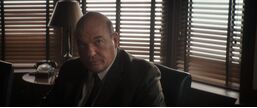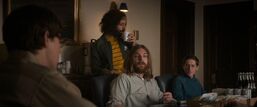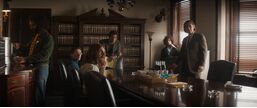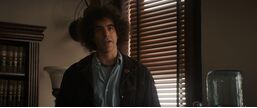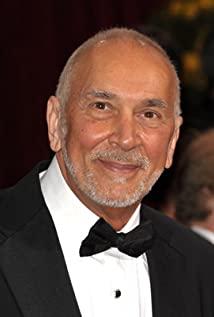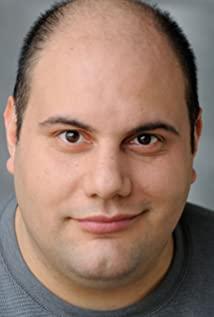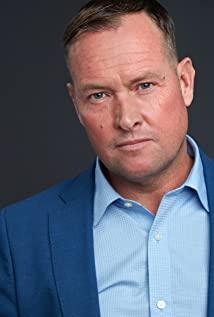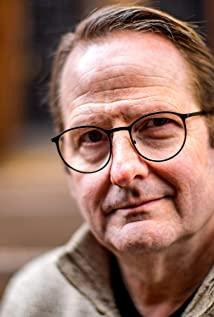1. Just last October, Hollywood screenwriter Alan Sorkin teamed up with Netflix to produce The Trial of the Chicago Seven. This time Sorkin once again uses the protagonist's mouth to discuss the left-wing movement. The film was widely acclaimed, and Alan Sorkin won the Golden Globe Award for Best Screenplay. 2. The film takes place in Chicago in the 1960s, when a group of passionate youth from the "Beat Generation" gathered in Chicago to oppose the Vietnam War. But just as US President Nixon took office, the situation of the US government VS the United States began. Seven patriots and a black leader came in different groups, including representatives of the Student Democrats, hippies (or aliens), citizens, and the Black Panthers. After a series of covert operations, these patriots were accused of rioting and were eventually arrested and jailed, but the irony is that the riot was clearly started by the mayor and the police. So this trial has become a whitewashing tool for the government, that is, "the stage and audience they want." 3. The film really maintains Sorkin's consistent style: machine gun-like lines, sharp editing and fast-paced plot development. Especially the opening title is too awesome, two words: Enjoy! This time, it can be seen that Sorkin really put a lot of effort into this. After all, this is the first official public discussion of the left wing, and it is indeed necessary to be fully prepared. After the second brush, I found that the plot is really seamless, the only disadvantage is that the rhythm is a bit too fast, which caused me to change the scene without even reading the subtitles [bitter] . The plot is ups and downs, and there are many reversals. Sorkin is worthy of being a Hollywood gold medal screenwriter. In addition to his own director, he filmed the innocence of the Seven Gentlemen and the anger of the people very well, making people look like they want to drop their phone. Feeling [angrily]. In addition, there are many unforgettable scenes in the movie, such as the shocking police officer removing their badges and violent law enforcement, the bailiff's forcible violence against Bobby, the collective resistance of the Seven Gentlemen and the lawyers, and the ending of the film Tom reads that the United States died in the Vietnam War The name of the soldier is really tear-jerking. It can actually ignite the passion of a foreigner [tears], which is really admirable [clasping fists] [clasping fists]. 4. This film fully reflects the shortcomings of the capitalist government and reflects the evils of bureaucratic capitalism. It can be seen that a capitalist society under the rule of law is nothing more than a sound-sounding way to maintain the rulers’ rule, and the laws set by these capitalist rulers are just a tool to maintain their rule, such as in the film. The "Rip Brown Act" mentioned is a law set by white Americans to limit the freedom of speech of black people. As long as you violate my rights, I will set the law and punish you through the law. This is very different from the rule of law in socialist countries. Moreover, the plaintiffs and the arranged judges in the film do not seem to mention any laws at all, just like the "political trail" mentioned in the film; lawyer Constler said this sentence: "I was still in the middle of the trial at the beginning of the trial. I am a little interested in the law, but now I have no interest at all." 5. In short, after watching this movie, I can't help but think of anti-crime. This movie is like the American version of Sweeping Black, but I don't know how many times better than Sweeping Black. Also such a good subject. . Alas, don't say [sigh] 6. I can't write anymore [tears] Especially the lines of this movie are very ironic. 7. Going a little further, why did Sorkin release such a film in a year of social unrest in 2020? Is it really just to show this history and casually talk about the left? I think it probably means borrowing the past to satirize the present. . The Vietnam War caused a sharp decline in the U.S. economy at the time, and last year’s trade war also hit the U.S. economy hard. Coupled with last year’s police brutality in law enforcement, shooting black people, and a series of salacious operations by Wang, isn’t this a repeat of history? So that's what this movie was released for—criticism. I think there needs to be more critiques of realist films. That said, if criticism is not free, praise is meaningless. Let’s learn it. Especially the lines of this movie are very ironic. 7. Going a little further, why did Sorkin release such a film in a year of social unrest in 2020? Is it really just to show this history and casually talk about the left? I think it probably means borrowing the past to satirize the present. . The Vietnam War caused a sharp decline in the U.S. economy at the time, and last year’s trade war also hit the U.S. economy hard. Coupled with last year’s police brutality in law enforcement, shooting black people, and a series of salacious operations by Wang, isn’t this a repeat of history? So that's what this movie was released for—criticism. I think there needs to be more critiques of realist films. That said, if criticism is not free, praise is meaningless. Let’s learn it. Especially the lines of this movie are very ironic. 7. Going a little further, why did Sorkin release such a film in a year of social unrest in 2020? Is it really just to show this history and casually talk about the left? I think it probably means borrowing the past to satirize the present. . The Vietnam War caused a sharp decline in the U.S. economy at the time, and last year’s trade war also hit the U.S. economy hard. Coupled with last year’s police brutality in law enforcement, shooting black people, and a series of salacious operations by Wang, isn’t this a repeat of history? So that's what this movie was released for—criticism. I think there needs to be more critiques of realist films. That said, if criticism is not free, praise is meaningless. Let’s learn it. Especially the lines of this movie are very ironic. 7. Going a little further, why did Sorkin release such a film in a year of social unrest in 2020? Is it really just to show this history and casually talk about the left? I think it probably means borrowing the past to satirize the present. . The Vietnam War caused a sharp decline in the U.S. economy at that time, and last year’s trade war also hit the U.S. economy hard. Coupled with last year’s police brutality in law enforcement, shooting black people, and a series of salacious operations, isn’t this a repeat of history? So that's what this movie was released for—criticism. I think there needs to be more critiques of realist films. That said, if criticism is not free, praise is meaningless. Let’s learn it. Especially the lines of this movie are very ironic. 7. Going a little further, why did Sorkin release such a film in a year of social unrest in 2020? Is it really just to show this history and casually talk about the left? I think it probably means borrowing the past to satirize the present. . The Vietnam War caused a sharp decline in the U.S. economy at the time, and last year’s trade war also hit the U.S. economy hard. Coupled with last year’s police brutality in law enforcement, shooting black people, and a series of salacious operations by Wang, isn’t this a repeat of history? So that's what this movie was released for—criticism. I think there needs to be more critiques of realist films. That said, if criticism is not free, praise is meaningless. Let’s learn it.
View more about The Trial of the Chicago 7 reviews


